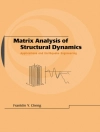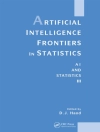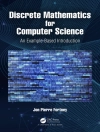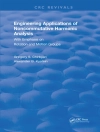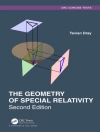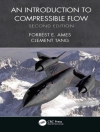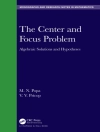Features step-by-step examples based on actual data and connects fundamental mathematical modeling skills and decision making concepts to everyday applicability
Featuring key linear programming, matrix, and probability concepts, Finite Mathematics: Models and Applications emphasizes cross-disciplinary applications that relate mathematics to everyday life. The book provides a unique combination of practical mathematical applications to illustrate the wide use of mathematics in fields ranging from business, economics, finance, management, operations research, and the life and social sciences.
In order to emphasize the main concepts of each chapter, Finite Mathematics: Models and Applications features plentiful pedagogical elements throughout such as special exercises, end notes, hints, select solutions, biographies of key mathematicians, boxed key principles, a glossary of important terms and topics, and an overview of use of technology. The book encourages the modeling of linear programs and their solutions and uses common computer software programs such as LINDO. In addition to extensive chapters on probability and statistics, principles and applications of matrices are included as well as topics for enrichment such as the Monte Carlo method, game theory, kinship matrices, and dynamic programming.
Supplemented with online instructional support materials, the book features coverage including:
* Algebra Skills
* Mathematics of Finance
* Matrix Algebra
* Geometric Solutions
* Simplex Methods
* Application Models
* Set and Probability Relationships
* Random Variables and Probability Distributions
* Markov Chains
* Mathematical Statistics
* Enrichment in Finite Mathematics
An ideal textbook, Finite Mathematics: Models and Applications is intended for students in fields from entrepreneurial and economic to environmental and social science, including many in the arts and humanities.
Содержание
Preface ix
About the Authors xi
1 Linear Equations and Mathematical Concepts 1
1.1 Solving Linear Equations 2
1.2 Equations of Lines and Their Graphs 7
1.3 Solving Systems of Linear Equations 15
1.4 The Numbers and e 21
1.5 Exponential and Logarithmic Functions 24
1.6 Variation 32
1.7 Unit Conversions and Dimensional Analysis 38
2 Mathematics of Finance 47
2.1 Simple and Compound Interest 47
2.2 Ordinary Annuity 55
2.3 Amortization 59
2.4 Arithmetic and Geometric Sequences 63
3 Matrix Algebra 71
3.1 Matrices 72
3.2 Matrix Notation, Arithmetic, and Augmented Matrices 78
3.3 Gauss-Jordan Elimination 89
3.4 Matrix Inversion and Input-Output Analysis 100
4 Linear Programming — Geometric Solutions 116
Introduction 116
4.1 Graphing Linear Inequalities 117
4.2 Graphing Systems of Linear Inequalities 121
4.3 Geometric Solutions to Linear Programs 125
5 Linear Programming — Simplex Method 136
5.1 The Standard Maximization Problem (SMP) 137
5.2 Tableaus and Pivot Operations 142
5.3 Optimal Solutions and the Simplex Method 149
5.4 Dual Programs 161
5.5 Non-SMP Linear Programs 167
6 Linear Programming — Application Models 182
7 Set and Probability Relationships 203
7.1 Sets 204
7.2 Venn Diagrams 210
7.3 Tree Diagrams 216
7.4 Combinatorics 221
7.5 Mathematical Probability 231
7.6 Bayes’ Rule and Decision Trees 245
8 Random Variables and Probability Distributions 259
8.1 Random Variables 259
8.2 Bernoulli Trials and the Binomial Distribution 265
8.3 The Hypergeometric Distribution 273
8.4 The Poisson Distribution 279
9 Markov Chains 285
9.1 Transition Matrices and Diagrams 286
9.2 Transitions 291
9.3 Regular Markov Chains 295
9.4 Absorbing Markov Chains 304
10 Mathematical Statistics 314
10.1 Graphical Descriptions of Data 315
10.2 Measures of Central Tendency and Dispersion 323
10.3 The Uniform Distribution 331
10.4 The Normal Distribution 334
10.5 Normal Distribution Applications 348
10.6 Developing and Conducting a Survey 363
11 Enrichment in Finite Mathematics 371
11.1 Game Theory 372
11.2 Applications in Finance and Economics 385
11.3 Applications in Social and Life Sciences 394
11.4 Monte Carlo Method 403
11.5 Dynamic Programming 422
Answers to Odd Numbered Exercises 439
Using Technology 502
Glossary 506
Index 513
Об авторе
Carla C. Morris, Ph D, is Assistant Professor of Mathematics in the Associate in Arts Program at the University of Delaware. A member of The Institute for Operations Research and the Management Sciences and the Mathematical Association of America, Dr. Morris teaches courses ranging from college algebra to calculus and statistics.
Robert M. Stark, Ph D, is Professor Emeritus in the Departments of Mathematical Sciences and Civil and Environmental Engineering at the University of Delaware. Dr. Stark’s teaching and research interests include applied probability, mathematical optimization, operations research, and mathematics education.


